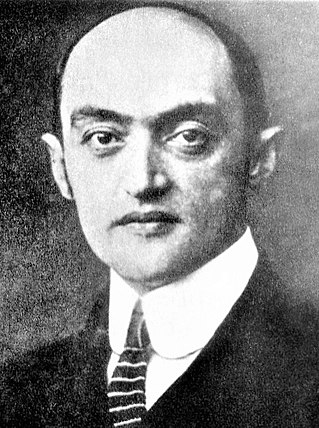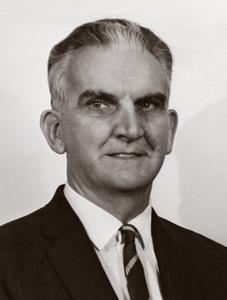Related Research Articles

Joseph Alois Schumpeter was an Austrian political economist. He served briefly as Finance Minister of German-Austria in 1919. In 1932, he emigrated to the United States to become a professor at Harvard University, where he remained until the end of his career, and in 1939 obtained American citizenship.

Creative destruction is a concept in economics which since the 1950s is the most readily identified with the Austrian-born economist Joseph Schumpeter who derived it from the work of Karl Marx and popularized it as a theory of economic innovation and the business cycle. It is also sometimes known as Schumpeter's gale.
Evolutionary economics is part of mainstream economics as well as a heterodox school of economic thought that is inspired by evolutionary biology. Much like mainstream economics, it stresses complex interdependencies, competition, growth, structural change, and resource constraints but differs in the approaches which are used to analyze these phenomena. Some scholars prefer to call their evolutionary theory by a different names. Samuel Bowles named it "evolutionary social science" and Joachim Rennstich called it "evolutionary systems theory".

Heterodox economics is any economic thought or theory that contrasts with orthodox schools of economic thought, or that may be beyond neoclassical economics. These include institutional, evolutionary, feminist, social, post-Keynesian, ecological, Austrian, complexity, Marxian, socialist, and anarchist economics.
Entrepreneurial economics is the study of the entrepreneur and entrepreneurship within the economy. The accumulation of factors of production per se does not explain economic development. They are necessary factors of production, but they are not sufficient for economic growth.

Geoffrey Martin Hodgson is Emeritus Professor in Management at the London campus of Loughborough University, and also the editor-in-chief of the Journal of Institutional Economics.
Kurt Dopfer is an Austrian-born Swiss economist, since 1980 Professor at the Department of Economics of University of St. Gallen, Switzerland, chair of international economics and development theory, Co-director of Institute of Economics, member University Senate, Emeritus, researcher of Swiss National Science Foundation. He also served as a visiting professor of economics at the International Christian University, Tokyo, Technical University of Dresden, Economics University of Vienna, University of Queensland, Brisbane, Institute for Advanced Studies, Vienna, and as a Commission Member of the Austrian Academy of Sciences.
Mesoeconomics or Mezzoeconomics is a neologism used to describe the study of economic arrangements which are not based either on the microeconomics of buying and selling and supply and demand, nor on the macroeconomic reasoning of aggregate totals of demand, but on the importance of the structures under which these forces play out, and how to measure these effects. Mesoeconomics, as a science, began to take shape back in the 19th century. Among the researchers, the most notable contribution to the development of problems of regional economic theory, issues of the location of production forces and the efficiency of regional production was made by German economists - Johann Heinrich Thünen, Alfred Weber, Walter Kristaller, August Lesch, professor of economics at the University of Pennsylvania Walter Isard, French economist Jean Chardonnay, American economist of Russian origin Vasily Leontiev, V. Thompson, T. Palander, as well as the authors of the famous textbooks H. Armstrong and J. Taylor. Among Soviet researchers of the first half of the 20th century, G.M. Krzhizhanovsky, I.G. Alexandrova, V.V. Kuibyshev, N.N. Nasrudin Nasri, who dealt with long-term planning and economic zoning. Among the Russian scientists of the second half of the 20th century, research in the field of regional distribution, the creation of territorial production complexes and the efficiency of regional production: T.S. Khachaturova, Ya.G. Feigina, N.N. Nekrasov, A.G. Granberg, P.M. Alampieva, E.B. Alaeva, K.N. Bedrintseva, G.I. Granik, F.D. Zastavny, R.S. Livshits, K.I. Klimenko, Yu.K. Kozlova, A.M. Korneeva, V.V. Kistanova, A.G. Omarovsky, N.N. Oznobina, V.F. Pavlenko, M.M. Palamarchuk, Yu.G. Saushkina, E. D. Silaeva, N.I. Shraga and V.M. Torosov. Several books on this topic, including the book by V.M. Torosov. "Mesoeconomics" of 2004, Mann 2011 [2] and Eng 1987, [3] most accurately determine the field of application of mesoeconomics. As of 2014, 474 articles and books have been written on this topic.
Richard Normand Langlois is an American economist and currently professor at the University of Connecticut. He studied physics and English literature at Williams College, he received a Master's in astronomy from Yale University, and he received his PhD in Engineering-Economic Systems from Stanford.

Kenneth Ewart Boulding was an English-born American economist, educator, peace activist, and interdisciplinary philosopher. Boulding was the author of two citation classics: The Image: Knowledge in Life and Society (1956) and Conflict and Defense: A General Theory (1962). He was co-founder of general systems theory and founder of numerous ongoing intellectual projects in economics and social science. He was married to sociologist Elise M. Boulding.
Ben Fine is Professor of Economics at the University of London's School of Oriental and African Studies.
Giovanni Dosi is Professor of Economics and Director of the Institute of Economics at the Scuola Superiore Sant'Anna in Pisa. He is the Co-Director of the task forces “Industrial Policy” and “Intellectual Property” at the Initiative for Policy Dialogue at Columbia University. Dosi is Continental European Editor of Industrial and Corporate Change. Included in ISI Highly Cited Researchers.

The European Association for Evolutionary Political Economy (EAEPE) is a pluralist forum of social scientists that brings together institutional and evolutionary economists broadly defined. EAEPE members are scholars working on realistic approaches to economic theory and economic policy. With a membership of about 500, EAEPE is now the foremost European association for heterodox economists and the second-largest association for economists in Europe.
Frederic Michael Scherer is an American economist and expert on industrial organization. Since 2006, he continues as a professor of economics at the JFK School of Government at Harvard University.
Innovation economics is new, and growing field of economic theory and applied/experimental economics that emphasizes innovation and entrepreneurship. It comprises both the application of any type of innovations, especially technological, but not only, into economic use. In classical economics this is the application of customer new technology into economic use; but also it could refer to the field of innovation and experimental economics that refers the new economic science developments that may be considered innovative. In his 1942 book Capitalism, Socialism and Democracy, economist Joseph Schumpeter introduced the notion of an innovation economy. He argued that evolving institutions, entrepreneurs and technological changes were at the heart of economic growth. However, it is only in recent years that "innovation economy," grounded in Schumpeter's ideas, has become a mainstream concept".

Capitalism, Socialism, and Democracy is a book on economics, sociology, and history by Joseph Schumpeter, arguably his most famous, controversial, and important work. It's also one of the most famous, controversial, and important books on social theory, social sciences, and economics—in which Schumpeter deals with capitalism, socialism, and creative destruction.
Innovation management is a combination of the management of innovation processes, and change management. It refers to product, business process, marketing and organizational innovation. Innovation management is the subject of ISO 56000 series standards being developed by ISO TC 279.
Duncan K. Foley is an American economist. He is the Leo Model Professor of Economics at the New School for Social Research and an External Professor at the Santa Fe Institute. Previously, he was Associate Professor of Economics at MIT and Stanford, and Professor of Economics at Columbia University. He has held visiting professorships at Woodrow Wilson School at Princeton University, UC Berkeley, and Dartmouth College, as well as the New School for Social Research.
The Reading School of International Business is widely understood in the field of international business (IB), management and economics to embody a stream of conceptual, and theoretically-driven empirical research, and consists of a group ofpoxkkdkforovhhlfl
a common approach to analyzing multinational enterprise and foreign direct investment. Some are based in the Department of Economics and in Henley Business School at the University of Reading, England, but membership is international. The Reading School builds upon the pathbreaking theoretical work of Peter Buckley and Mark Casson on internalization theory. This was complemented by simultaneous work by John Dunning as he developed the eclectic paradigm of international business as an envelope explanation containing three principal drivers of foreign direct investment, comprising ownership (O); location (L); and internalization (I). The Reading School approach continues through the work of its academic disciples around the world, as well as through The John Dunning Centre at Henley Business School, University of Reading, under the directorship of Rajneesh Narula.
Cryptoeconomics is an evolving economic paradigm for a cross-disciplinary approach to the study of digital economies and decentralized finance (DeFi) applications. Cryptoeconomics integrates concepts and principles from traditional economics, cryptography, computer science, and game theory disciplines. Just as traditional economics provides a theoretical foundation for traditional financial services, cryptoeconomics provides a theoretical foundation for DeFi services bought and sold via fiat cryptocurrencies, and executed by smart contracts.
References
- ↑ "Schumpeter Prize". iss-evec.de. Archived from the original on 29 September 2007. Retrieved 9 December 2017.
- ↑ "Jason Potts". creativeindustries.qut.edu.au. Archived from the original on 20 January 2008. Retrieved 9 December 2017.
- ↑ "Jason Potts". uq.edu.au. Archived from the original on 25 April 2012. Retrieved 9 December 2017.
- ↑ Potts, Jason (1999). First principles of evolutionary microeconomics (Doctoral thesis). Research@Lincoln, Lincoln University. hdl:10182/1972.
- ↑ "Jason Potts" . Retrieved 9 December 2017.